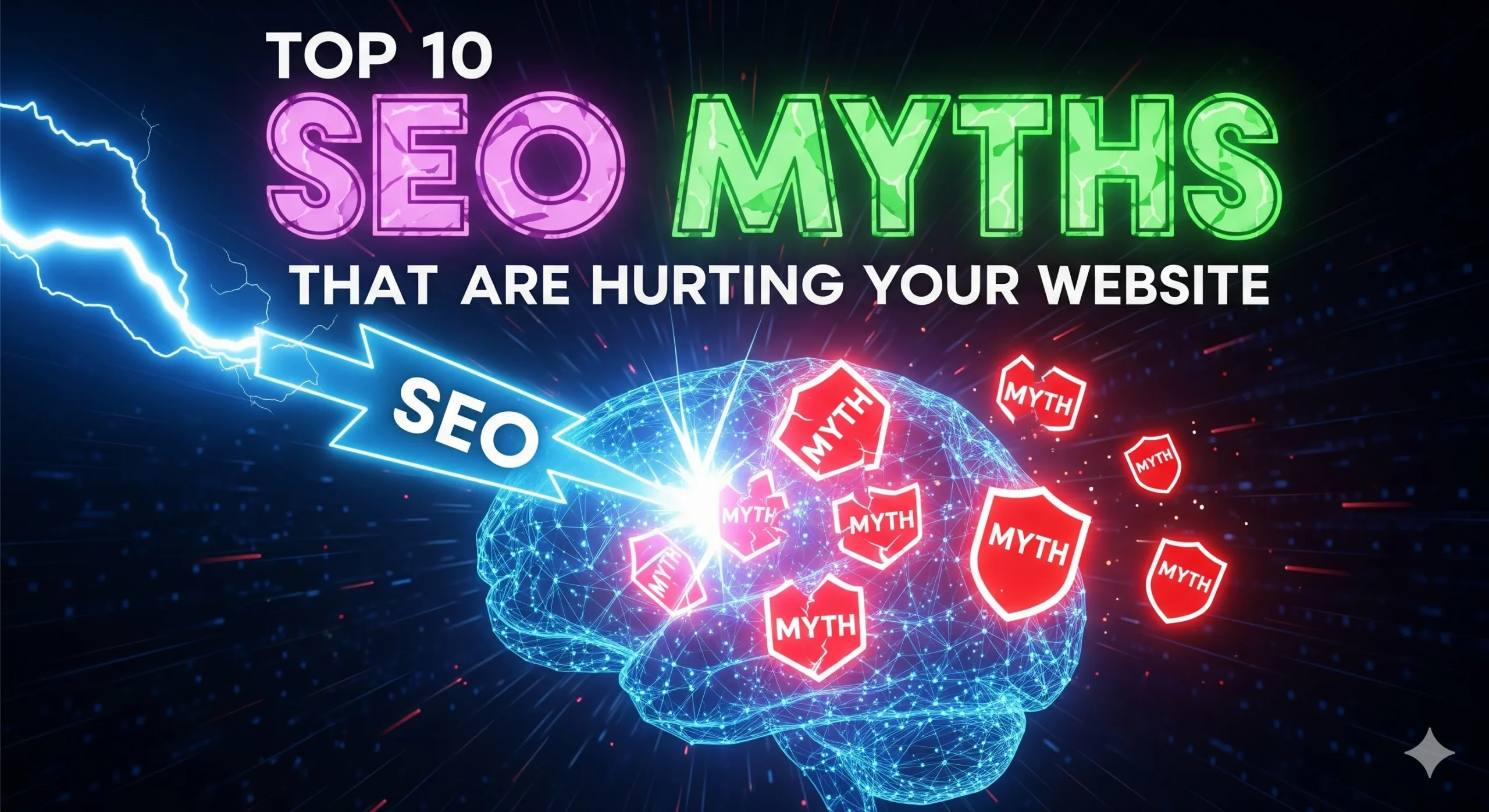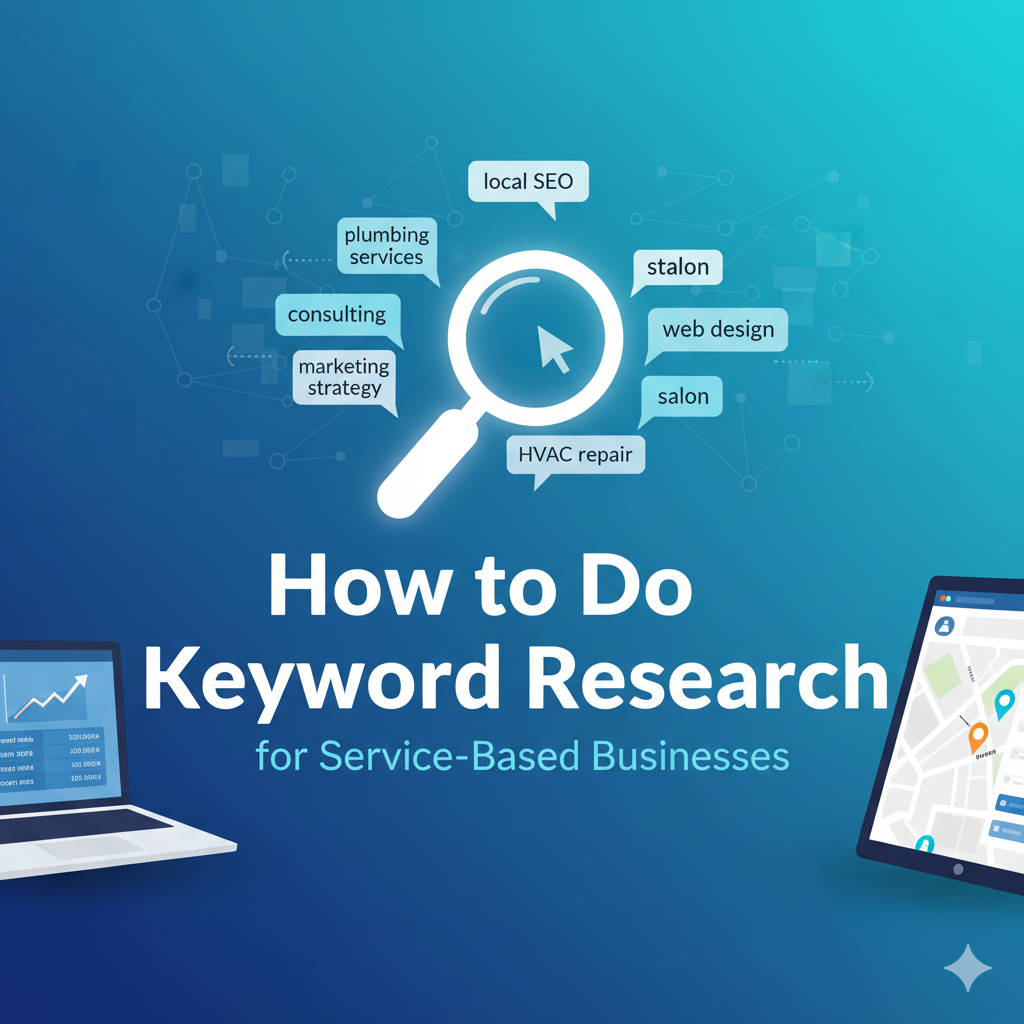Did you know that over 90% of web pages get zero traffic from Google? One of the biggest reasons is that many businesses still rely on outdated or incorrect SEO strategies. In the fast-changing world of search engines, blindly following wrong advice can tank your rankings, lower your traffic, and cost you conversions.
The truth is, SEO is constantly evolving. What worked five years ago may no longer work today. In fact, some “popular” tips you find online could actually hurt your website’s visibility instead of helping it.
In this guide, we’ll debunk the top 10 SEO myths that might be holding you back. By the end, you’ll know exactly what to avoid and what to focus on to improve your rankings, traffic, and conversions in 2025.
Why SEO Myths Exist
SEO myths spread quickly because:
- Google updates its algorithms constantly — leaving outdated strategies behind.
- Marketers copy old advice without verifying it against Google’s latest guidelines.
- Quick-win promises tempt beginners into shortcuts that don’t actually work.
Unfortunately, these myths can lead to wasted time, lost money, and poor results. That’s why understanding the facts is the first step toward SEO success.
Top 10 SEO Myths That Are Hurting Your Website
Myth #1: “More Keywords = Higher Rankings”
The Truth: Keyword stuffing used to work… but not anymore. Google’s algorithms are now smarter and focus on user intent, not keyword density.
Why It Hurts: Overusing keywords makes your content unnatural, hard to read, and can even trigger Google penalties.
What to Do Instead:
- Use keywords strategically in titles, subheadings, and introductions.
- Focus on search intent rather than raw repetition.
- Use related keywords and synonyms to sound natural.
📌 Pro Tip: Tools like Semrush and Ahrefs can help you identify LSI keywords for better optimization.
Myth #2: “Backlinks Don’t Matter Anymore”
The Truth: Backlinks remain one of Google’s top three ranking factors. However, the game has changed.
Why It Hurts: Ignoring backlinks means you’ll struggle to compete with high-authority websites.
What to Do Instead:
- Focus on high-quality backlinks from relevant, trusted sources.
- Avoid spammy link-building schemes — they can get you penalized.
- Create shareable content like case studies, infographics, and guides to earn links naturally.
📌 Pro Tip: Use Beehiiv, Help a Reporter Out (HARO), or guest posting to land quality backlinks.
Myth #3: “You Don’t Need to Optimize for Mobile”
The Truth: Google now uses mobile-first indexing. If your website isn’t mobile-friendly, you’re invisible to most users.
Why It Hurts: With over 65% of searches coming from mobile, a poor mobile experience can kill your rankings and conversions.
What to Do Instead:
- Use a responsive design that adapts to all devices.
- Test your site on Google’s Mobile-Friendly Test Tool.
- Optimize images and page speed for smaller screens.
Myth #4: “Longer Content Always Ranks Better”
The Truth: Word count alone doesn’t guarantee rankings. Google values quality over quantity.
Why It Hurts: Writing unnecessarily long content can make readers leave your page quickly, increasing your bounce rate.
What to Do Instead:
- Focus on depth, not length. Answer the user’s query completely and concisely.
- Use structured subheadings and visual elements to make content scannable.
- Prioritize user experience over content volume.
📌 Pro Tip: Aim for comprehensive guides when needed but keep readability first.
Myth #5: “Meta Descriptions Don’t Matter”
The Truth: While meta descriptions don’t directly affect rankings, they have a huge impact on click-through rates (CTR).
Why It Hurts: Ignoring them leads to lower CTR, which indirectly affects SEO.
What to Do Instead:
- Write compelling meta descriptions that encourage clicks.
- Include your primary keyword naturally.
- Keep them under 160 characters to avoid truncation.
Myth #6: “SEO Is a One-Time Effort”
The Truth: SEO is an ongoing process. Search engines, competitors, and trends evolve constantly.
Why It Hurts: Setting up SEO once and forgetting about it will cause your rankings to drop over time.
What to Do Instead:
- Regularly update existing content.
- Continuously build quality backlinks.
- Monitor analytics to adjust strategies as needed.
📌 Pro Tip: Treat SEO like a marathon, not a sprint.
Myth #7: “Google Ads Improve Organic Rankings”
The Truth: Running Google Ads doesn’t influence your organic rankings.
Why It Hurts: Believing this can lead to wasted ad spend without improving long-term SEO performance.
What to Do Instead:
- Use Google Ads strategically for immediate traffic.
- Invest in organic SEO to build sustainable visibility.
- Combine both for a balanced strategy.
Myth #8: “Domain Age Determines Ranking”
The Truth: A new domain can outrank an old one if it offers better content and authority.
Why It Hurts: Overvaluing domain age can lead you to ignore content quality and technical SEO.
What to Do Instead:
- Focus on expertise, authority, and trustworthiness (E-A-T).
- Build a solid content and backlink strategy from day one.
Myth #9: “Duplicate Content Gets You Penalized”
The Truth: Google doesn’t penalize duplicate content but filters it out from rankings.
Why It Hurts: Misunderstanding this can lead to unnecessary rewrites and wasted effort.
What to Do Instead:
- Use canonical tags to indicate the preferred version of a page.
- Avoid thin or spun content.
- Consolidate similar pages into pillar content when possible.
Myth #10: “SEO Guarantees Instant Results”
The Truth: SEO is a long-term strategy. Results often take 3–6 months to appear.
Why It Hurts: Expecting instant success leads to frustration and poor decision-making.
What to Do Instead:
- Set realistic KPIs and timelines.
- Focus on consistent, high-quality content creation.
- Combine SEO with other channels like email marketing and social media.
Best Practices to Avoid SEO Myths
- Follow Google Search Central for official guidelines.
- Stay updated with trusted SEO sources like Moz, Ahrefs, and Semrush.
- Use tools like Google Analytics and Google Search Console to track performance.
- Test strategies before fully implementing them.
Conclusion
SEO success isn’t about following every piece of advice you find online — it’s about knowing what actually works. By avoiding these 10 harmful myths, you’ll improve your website’s rankings, visibility, and traffic in 2025 and beyond.
Pro Tip: Want to get ahead faster? Partner with SEO experts who stay updated with Google’s ever-changing algorithms.




